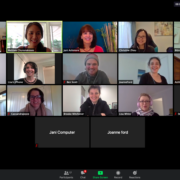Helping Your Customers Achieve Their Objectives: Quantifying the Challenges
This is an article on helping your sales reps uncover their prospects’ primary business objectives and the challenges preventing their fulfillment. This discovery phase is critical to helping reps align their products or services as solutions to their customers’ key business challenges.
We will focus on qualification, which involves getting customers to quantify their challenges. Without this critical step, it’s impossible for sales reps to show their prospects the cost of doing nothing and motivate them to make a change.
The following are questions that will help your reps quantify the financial gain customers stand to achieve by using your product or service.
Impact Questions. It is important to elicit from the prospect the impact that the overall pain has on the company and the individuals involved. Understanding the consequences motivates the prospect to take action.
- “What kinds of problems is this causing for you?”
- “What impact is it having on sales and profitability?”
- “Seems like this might affect….., does it? Can you tell me more?”
- “What happens if it doesn’t get fixed?”
- “Who else is involved or impacted?”
They’ll say things like:
- “I’m under a lot of pressure to turn sales around and we’re having to offer discounts to move product. Our margins are down by 20%.”
- “It’s affecting our ability to meet our customers’ expectations. We’re starting to lose business.”
Commitment Questions. Commitment questions help determine how important it is to rectify the situation and what action the prospect might take if you were able to provide a solution that they felt would work. Although they might have a problem, it’s wrong to assume they are committed or have a budget to fix it.
Ask questions like these to see how strong their commitment is:
- “How important is it to fix this problem?”
- “What priority is it to fix the problem?”
- “Is doing nothing an option?”
How will you feel when your prospect starts to say things like this?
- “We’d want to get started as soon as possible.”
- “We’d be willing to start switching some of our business over by (date) if we felt you could do the job.”
Budgetary Questions. These questions that will help you uncover what kind of budget your prospect has to fix the problem.
- “Do you have a budget to take care of the problem? What would it be, approximately?”
- “Assuming we could make the problem go away, how much would you be willing to invest to fix a $_________ problem?”
They’ll say things like:
- “We have a $200,000 budget for training and development.”
- “Our server outage is costing us over $1 million annually, so we’re willing to invest quite a bit if we were confident the new solution will decrease downtime by 99%.”
These financial questions will help your sales reps complete a critical final step in the qualification process – getting their prospects to put a dollar value to the challenges they’re facing and discuss what kind of budget they have available to fix them.
Many sales reps lose opportunities not because they have poor presentation or negotiation skills, but more often because they have not done a thorough job understanding their prospects’ primary business objectives and challenges.
In order to maximize their chances of success, the best reps don’t force feed objectives, challenges and budgets to their prospects, but use a series of intelligent questions to encourage their prospects to come up with these on their own. As a sales professional, your credibility comes from the kinds of questions you ask, and your success depends upon your ability to help your customer achieve their objectives.





